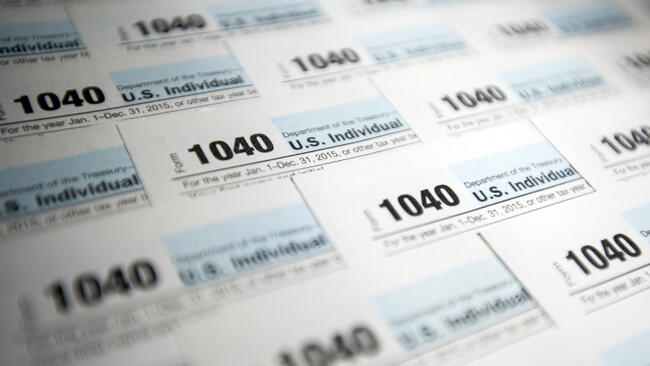👻 Spooky spending

Sign up for the weekly edition of The Currency newsletter delivered to your inbox. 📧
Sign up for the weekly edition of The Currency newsletter delivered to your inbox. 📧
Something wicked this way comes: Halloween, yes. But also: It’s a spooky spending splurge.
According to the National Retail Federation (NRF), Americans are set to spend $12.2 billion* on all things that go bump in the night: candy, costumes, and creepy lawn decor (more on that below). And shoppers aren’t forgetting their little werewolves at home – spend on pet costumes is projected to howl up to $700 million.
The scares might not come cheap, but for millions of people, nothing beats a good fright night (just ask Universal – its spooktacular Halloween Horror Nights screams up a thrilling $575 million* each season).
Check out what else is brewin’ in money news this week.
– The Editors
PLAY
💀 No bones about it: Home Depot’s larger-than-life skeletons that debuted back in 2020 and stand 12-feet high (nicknamed Skelly by fans) started a spooky trend that made the home improvement store the go-to place for themed decor. The NRF says 53% of Americans* plan to deck out their home or yard this year, spending a scary $4 billion on ghoulish and grim decorations. Shoppers make 8% of Halloween purchases at home improvement stores, and Home Depot increased its outdoor decoration supply by 104%* in 2022 to meet this growing demand.
🔮 Hex appeal: Like an urban legend, it appears overnight, rising from dead storefronts in unassuming strip malls and spreading the “Spirit Halloween” to shoppers for 40 years. With no permanent location, the costume, prop, and candy retailer has a year-round team that analyzes available real estate for 1,500 pop-ups* that vary in size from 5,000 to 50,000 square feet. Flexibility has been the business model since the first store opened in California in 1983, making a reported $100,000 in just 30 days. Today, total spending on costumes is expected to reach $4.1 billion* – up 14% from last year and 28% from five years ago.
🤖 Battle of the bots: X (formerly known as Twitter) is testing a program that will begin charging new users $1 a year* to access key features including the ability to post, reply, and quote. But don’t call it a revenue driver: In a statement on the platform, X’s support account said the move was designed to cut down the prevalence of bots and spam. The $1 annual charge is only for new users and is different from X Premium, which offers extra features like “undo” and “edit” for posts at $8 a month.
___________
🎃 Trick-or-Treat: It’s not always sweet on Halloween: The cost of candy and gum is up 7.5%* according to the Consumer Price Index. Feeling the scary squeeze, 1 in 4 (26%) respondents of last week’s poll say candy is off the table this season. Nearly a third are split between spending $30 on variety packs (33%) or staying thrifty with a bonbon budget of $20 or less. Just 10% spring for full-sized candy bars (but we all know where they live).
👻 It wouldn’t be All Hallows’ Eve without us asking: Which financial trend do you hope ghosts you next year?
- The overabundance of tipping screens
- NFTs
- Writing checks
- Inflation
- Super high mortgage rates
Boo!
___________
MONEY
Americans are stocking up
In 2022, a record-breaking 58% of American households* owned stock, either directly or indirectly through mutual funds and other investment accounts.
According to The Fed’s newest edition of the Survey of Consumer Finances,* direct ownership of stocks (e.g., investments outside of holdings through vehicles like a 401(k) plan) jumped from 15% to 21% between 2019 and 2022, the largest change on record. To put that in perspective, direct ownership hasn’t been as high since the early 2000s.
Some experts note that this uptick reflects COVID-related changes in behavior among Americans, who turned to the stock market during the pandemic, as well as the meme stock trend that rose to pop culture fame following the GameStop short squeeze in 2021.
Investing in stocks is just one piece of a robust portfolio mix. Check out where you stack up against other investors your age in our breakdown on The Currency™.
WORK
Put it on the office tab
A new survey finds that hybrid workers are spending an average $51 a day* when traveling into the office: That's $36 more than they reported spending on a typical day working from home.
The research found daily expenses for hybrid workers include an average of $8 on parking, $13 on breakfast and coffee, $16 on lunch, and $14 on commuting. Those who need pet care spend an extra $20 a day.
That may be why 29% of hybrid and remote workers say they expect a pay bump if they have to return to the office full time. On the flip side, some workers say they’d even consider a pay cut up to $35,000 a year to avoid going back to the office.
As we near end-of-year conversations at work, start thinking about your next career move.
LIFE
On the score board
A new ranking* gives the U.S. a C+ score when it comes to retirement. The 2023 Global Pension Index rates retirement income systems across the world using the weighted average of the adequacy, sustainability, and integrity of the systems.
The U.S. earned 63 out of 100 possible points and an overall ranking of 22 out of the 47 countries included in the study. Countries topping the list include the Netherlands, Iceland, and Denmark.
Some experts say the ranking may be in part because retirement security in America is very individualized. A recent Empower report reveals 56% of Americans say a 401(k) is the top way they save for retirement and that the average 401(k) account balance for people ages 60 to 65 is $198,194.
Setting up a solid financial and retirement plan can help you prepare for a secure future.
As of October 23, 2023, EAG holds shares of Home Depot Inc. (HD) in advisory client accounts and does not hold Universal Corporation (UVV) or GameStop (GME).
RO3185974-1023
WF2927404-1023
*Third-party data is obtained from sources believed to be reliable; however, Empower cannot guarantee the accuracy, timeliness, completeness, or fitness of this data for any particular purpose. Third-party links are provided solely as a convenience and do not imply an affiliation, endorsement, responsibility, or approval by Empower of the contents on such third-party websites.
The content contained in this blog post is intended for general informational purposes only and is not meant to constitute legal, tax, accounting or investment advice. You should consult a qualified legal or tax professional regarding your specific situation. No part of this blog, nor the links contained therein is a solicitation or offer to sell securities. Compensation for freelance contributions not to exceed $1,250. Third-party data is obtained from sources believed to be reliable; however, Empower cannot guarantee the accuracy, timeliness, completeness or fitness of this data for any particular purpose. Third-party links are provided solely as a convenience and do not imply an affiliation, endorsement or approval by Empower of the contents on such third-party websites. This article is based on current events, research, and developments at the time of publication, which may change over time.
Certain sections of this blog may contain forward-looking statements that are based on our reasonable expectations, estimates, projections and assumptions. Past performance is not a guarantee of future return, nor is it indicative of future performance. Investing involves risk. The value of your investment will fluctuate and you may lose money.
Certified Financial Planner Board of Standards Inc. (CFP Board) owns the certification marks CFP®, CERTIFIED FINANCIAL PLANNER™, CFP® (with plaque design), and CFP® (with flame design) in the U.S., which it authorizes use of by individuals who successfully complete CFP Board's initial and ongoing certification requirements.





